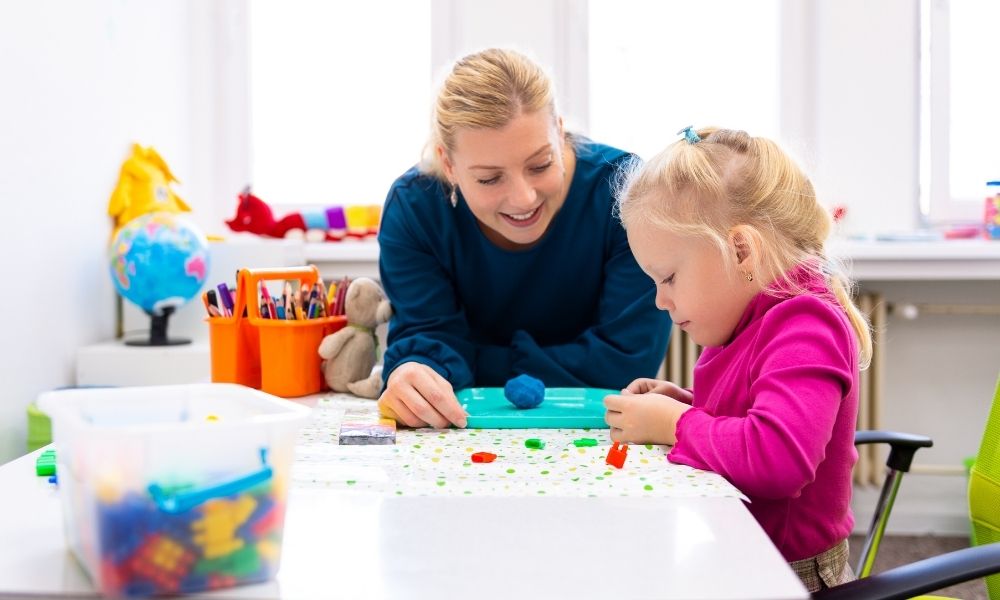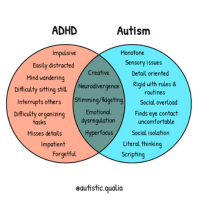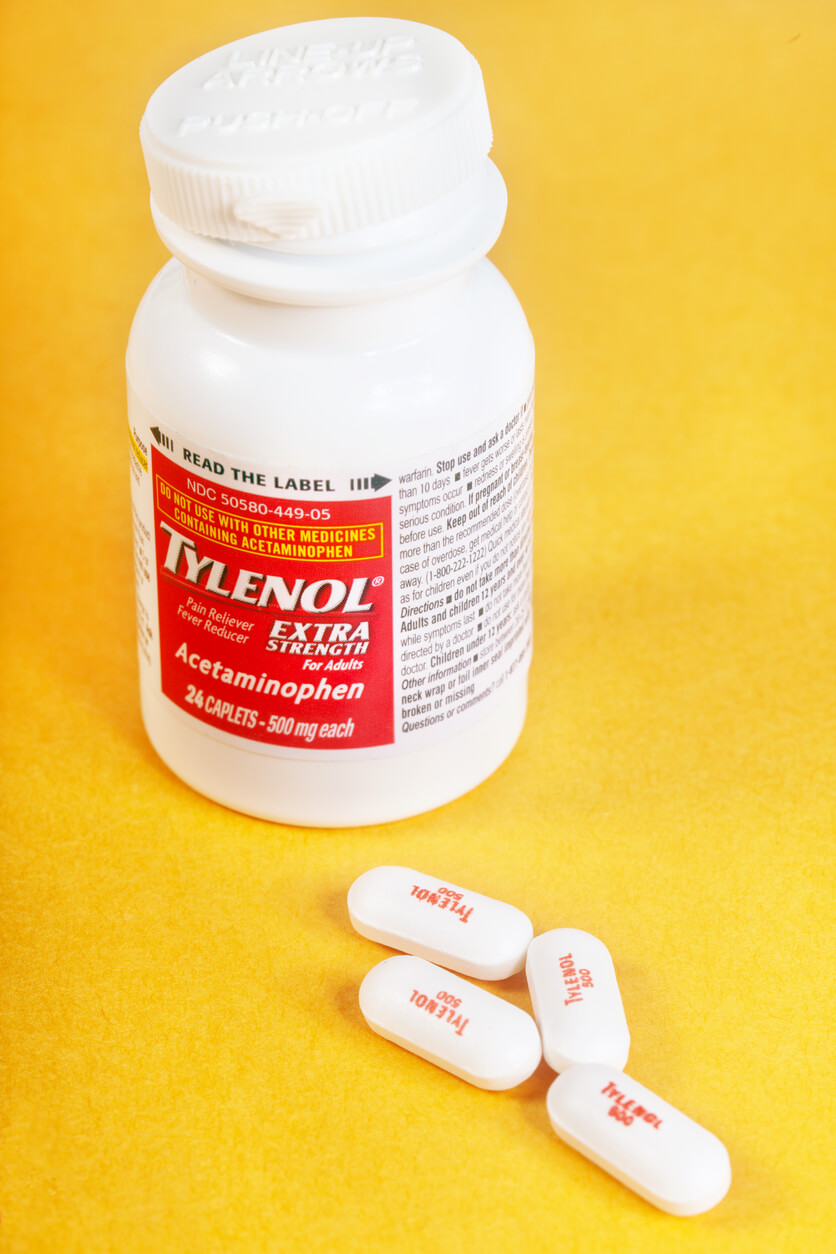Attention-Deficit/Hyperactivity Disorder (ADHD) is a neurodevelopmental disorder that typically shows up during childhood. However, it’s not uncommon for parents and even health-care professionals to confuse the symptoms of ADHD with normal displays of energetic behavior. Here are some ways to tell if your child has ADHD or is just energetic. High Energy Is Normal for Many Kids All children are energetic at times. They run around, make noise, have tons of questions—that’s just kids being kids. They may be fidgety or even anxious at times, displaying nervous habits for comfort.…
Read MoreCategory: ADHD
Trichotillomania Symptoms
Trichotillomania Symptoms Trichotillomania (trik-o-till-o-MAYN-ee-uh) is an impulse control disorder that causes you to have recurrent and irresistible urges to pull your hair. This can cause obvious bald or thin spots that can be embarrassing and distressing. It is commonly a co-occurring disorder with other conditions such as anxiety and depression or other disorders such as Tourette Syndrome and Compulsive Skin Picking. Anxiety Trichotillomania is a type of impulse control disorder that causes people to pull out their hair. It may be from their scalp, eyelashes, eyebrows or even the pubic…
Read MoreDone ADHD Review
Done ADHD is an online telemedicine service that provides medication management for people with ADHD. Its online reviews are generally positive, but some users have experienced problems with the company’s customer service. Patients can schedule an initial consultation appointment by filling out a one-minute assessment. After this, providers will dive deeper into your symptoms and treatment goals. They will also review your medical history. Cost ADHD can affect a person’s life in many ways, including their relationships and work efficiency. Untreated, it can also cause anxiety and depression, and lead…
Read MoreRaising Special Needs Children
Raising Special Needs Children Nothing can prepare parents for the challenges of raising a special needs child. Most of the regular child-raising issues still apply, but there are also many things that will be unique to the situation. Adding to these unique considerations is the emotional component that must not be overlooked. Families must recognize their personal stress levels and consider parental self-compassion as a necessary part of family-focused care. 1. Know Your Child’s Needs When your child has special needs, you will have more than the typical parenting worries…
Read MoreHelping Children With Special Needs
A solitary piece of written composition forming an independent part of a publication, such as a newspaper or magazine. Provide positive role models with disabilities such as Nobel Prize winning geneticist Carol Greider (learning disability), film director Steven Spielberg and animal scientist Temple Grandin (autistic spectrum disorder). This will inspire students to think, “If they can do it, I can too.” It is also important to offer the right strategy training and accommodations. Find out what they’re good at. It’s important for special needs people to be treated with kindness,…
Read MoreSymptoms of Autism and ADHD
Symptoms of Autism and ADHD Many of the symptoms of autism and ADHD overlap, so kids can be misdiagnosed. Symptoms like social impairment, trouble reading social cues and impulsivity can be mistaken for ADHD. In adults with co-occurring autism and ADHD, treatment options are limited. Stimulant medications like Adderall help improve focus, while antipsychotic drugs such as Abilify and Risperdal can reduce irritability and aggression. Symptoms While some of the symptoms of autism and ADHD overlap, each condition has its own unique set of traits and behaviors. While ADHD is…
Read MoreTylenol Autism Lawsuit – MDL Rulings Will Impact Cases Moving Forward
Tylenol Autism Lawsuit – MDL Rulings Will Impact Cases Moving Forward The recent rulings in the Tylenol MDL will have a huge impact on the cases moving forward. At the most recent status conference, Judge Cote ruled against Walmart’s motion to dismiss the ADHD and autism lawsuits. If you took acetaminophen during pregnancy and your child was diagnosed with a neurodevelopmental disorder, you may qualify for compensation. This article shares the basics of this nationwide legal action. What is an MDL class action? If multiple lawsuits have been filed against…
Read More5 Habits for Weight Loss
5 Habits for Weight Loss Unlike popular detoxes and meal plans promoted by Instagram influencers, sustainable weight loss requires small habit changes that can be kept up over time. These include: Begin by becoming more aware of what you eat and drink by tracking your food and beverage intake in a journal or with a free app. This will help you avoid mindless consumption. 1. Eat a balanced diet A balanced diet is an important part of a healthy lifestyle and can help you lose weight. It should include foods…
Read MoreWhat is Dyslexia?
What is Dyslexia? A person’s brain processes letters and words differently when they have dyslexia. This processing difference is caused by inherited genes and the quality of literacy instruction. Children with dyslexia need effective, structured literacy instruction to manage their difficulties. Federal laws entitle them to special help in school, including extra time for tests and assistance with taking notes. It’s a brain disorder Many people who struggle with dyslexia feel like they are somehow damaged or flawed. They may even have the same difficulties in other parts of their…
Read MoreWeight Loss Medication
Weight Loss Medication There are many medications that can help with weight loss. Some examples are bupropion/naltrexone (Contrave), liraglutide (Saxenda), and semaglutide (Mounjaro). These drugs may be prescribed along with other treatment options, like bariatric surgery. They can also improve health problems related to obesity, such as high blood pressure and diabetes. Phentermine Phentermine is an appetite suppressant that works by altering the levels of neurotransmitters in your brain. It also helps you feel more alert and makes it easier to concentrate on daily tasks. It can help you maintain…
Read More






